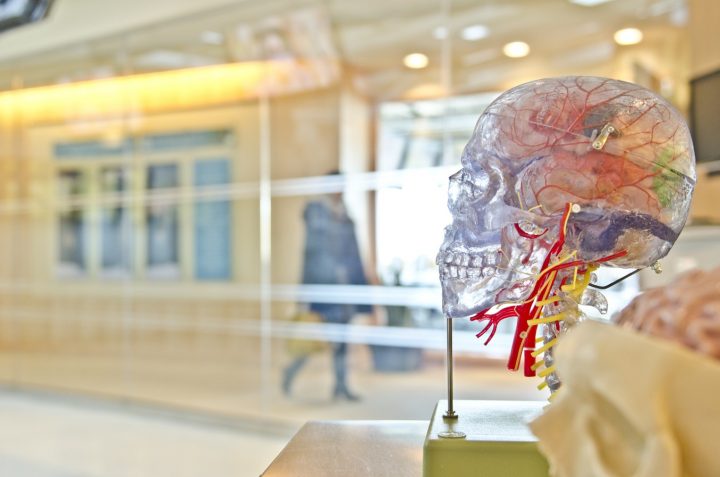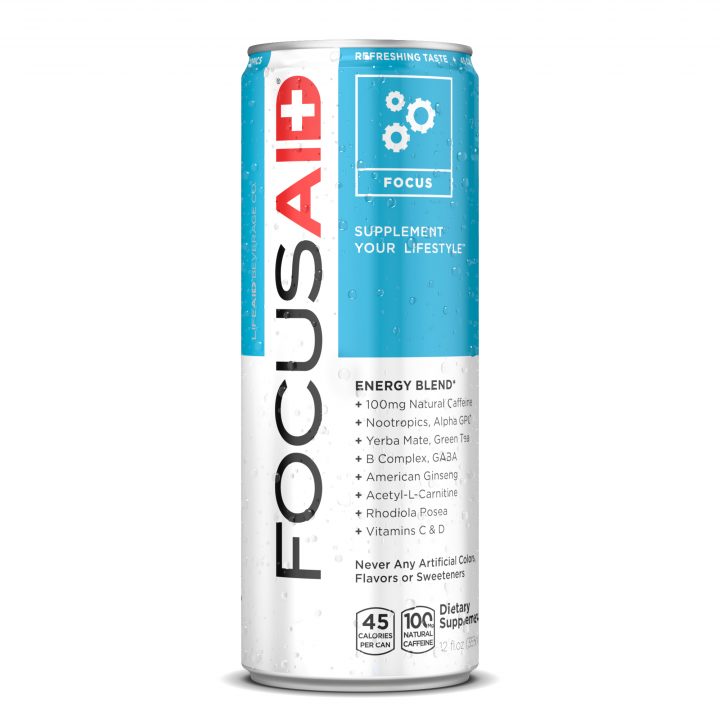Fact. Taking nootropics can enhance your mental performance.
While you may have heard about this in the news lately, you may still be asking, “What exactly are nootropics?” The term applies to any agent that has an effect on nerve tissue, typically referring to agents that enhance overall brain function or facilitate growth. When looking for a daily nootropic supplement to boost your mental acuity, there are a few key things you should be looking for.
We asked neuroscientist Allison Brager, PhD, a Postdoctoral Fellow at Morehouse School of Medicine, to give us some tips. The following is her analysis of the ingredients in FocusAid:
In my quest for natural supplements that can boost physical and mental performance, I have developed a certain level of skepticism about efficacy. I often turn to public biomedical databases (such as PubMed, a compilation of peer-reviewed science housed at the National Library of Medicine) to determine the following:
- Have the ingredients been investigated in basic animal or human clinical trials?
- Do the ingredients have identified (rather than assumed) effects on behavior and mental performance?
There are certain products that I view as "snake-oil placebos" and others that I view as legitimate. FocusAid is a product recently developed by the team at LIFEAID Beverage Company which I consider to be a legitimate product.
FocusAid first piqued my curiosity because it contains a blend of several plant-based nootropics. The blend of nootropic ingredients in FocusAid has an affinity for nearly every type of neurochemical pathway of the brain, as I will explain below. Most of these nootropic ingredients are plant-based medicines already associated with ameliorating symptoms for Alzheimer's, depression and anxiety, meaning they are associated with fine-tuning and facilitating learning, memory, attention and mood. Below is a brief review of each ingredient and how each contributes to optimal mental function and brain health. I will focus on three ingredients in my analysis because they are the key ingredients which separate FocusAid from other drinks on the market.

Rhodiola rosea
Its geographical sources are fairly widespread, growing in mountainous regions of the world: Asia, Europe (Carpathian mountain range) and even Appalachia. A search for its use in biomedical research reveals that it has been used for animal and human models of depression, anxiety and fatigue. This is not a surprise given that Rhodiola rosea stimulates two key neurochemical pathways linked to attention, reward and pleasure: serotonin ... Enhanced production of serotonin ... enhances focus on mental tasks, attention to detail and more pronounced sensations of pleasure in one's environment. This production is also a stepping stone for the production of norepinephrine. Norepinephrine helps to regulate our natural flight-or-fight responses in times of stress, danger or training. There are a few studies with Rhodiola rosea in humans and rodents that inform my book, Meathead: Unraveling the Athletic Brain. To start with rodents, Rhodiola rosea has been found to facilitate the growth and reach of nerve cells onto other nerve cells. This concept known as "dendritic arborizations" (because the extensions from nerve cells look like tree branches) enhances communication within and among brain areas. This type of growth and reach with Rhodiola rosea is particularly prevalent in the hippocampus, the are of the brain responsible for learning and memory. These studies show that Rhodiola rosea optimizes learning and memory in rodents. In one human study Rhodiola rosea is shown to help prevent “overtraining”—its application balances testosterone to serotonin release ratios, a key physiological indicator of overtraining. Essentially, with this handful of studies, I must conclude that Rhodiola rosea has a versatile impact on optimizing mental (and physical) performance.
Alpha-GPC (L-Alpha glycerylphosphorylcholine)
I first learned about Alpha-GPC in early 2015. It is the active (plant-based) ingredient of several over-the-counter brain boosters. Alpha-GPC activates the release of acetylcholine, a neurochemical important for learning, memory and the overall health of nerve cells. In my own field, sleep research has shown acetylcholine has an “alertness” effect on the brain and behavior. Its release is high during wakeful states but also during REM sleep, the only state of sleep where we dream. Its main function is to keep our brains active. The fact that acetylcholine release is high during sleep may seem puzzling at first, but once you understand that REM sleep is basically an active brain in a paralyzed body, it makes a bit more sense. It is also relevant to the process of brain destruction in Alzheimer's patients. Nerve cells lose their structural support and form what are called neurofibrillary tangles as the disease progresses. However, activities such as exercise can slow this destructive process in nerve cells which I also discuss in Meathead: Unraveling the Athletic Brain. Supplements which are acetylcholine-enhancers can slow this process, as well.
GABA (Gamma AminoButyric Acid)
This neurochemical is widely present in the brain. It is critical for calibrating and fine-tuning emotions and behavior. It is most widely studied for its roles in controlling depression and anxiety. By fine-tuning emotions and behavior, GABA makes systems even more efficient.
C O N C L U S I O N
Based on my analysis, it is apparent that FocusAid has a blend of nootropics (including Rhodiola Rosea, Alpha-GPC and GABA) linked to enhancing learning, memory, mood, attention and pleasure. FocusAid also contains other ingredients that nurture brain health (Acetyl-L-Carnitine and American Ginseng) and alertness (Yerba Mate, a plant-based stimulant grown in South America—Paraguay, Argentina and Chile).
Bottom line: I honestly have not found a better product to help you harness mental and physical success than FocusAid.
Try FOCUSAID today! Click here to try now.
Allison Brager, PhD
Neuroscientist, Biomedical Researcher
Postdoctoral Fellow at Morehouse School of Medicine
Original source published on: June 2, 2016
> > > Live well!
Fact. Taking nootropics can enhance your mental performance. While you may have heard about this in the news lately, you may still be asking, “What exactly are nootropics?” The term applies to any agent that has an effect on nerve tissue, typically referring to agents that enhance overall brain function or facilitate growth. When looking […]
PRESS RELEASE: Beverage Biz Insights | Dec. 12, 2018
LIFEAID Beverage Co. has a full slate of activities on tap for 2019, including overt push into energy drink occasions via tweak to FocusAid!
The entry will dial up (natural) caffeine and buildout of DSD network in western part of the U.S.
Co-founded by Aaron Hinde and Orion Melehan in Santa Cruz, California, started with FitAid—entry that was keyed to then-burgeoning CrossFit channel, challenging incumbent brand Kill Cliff and successively adding range of other carefully targeted entries under monikers like FocusAid, TravelAid, PartyAid and even GolferAid, moving from natural/specialty into grocers and then mass/drug channels. Unusually, what might be viewed as its core brand, LifeAid, did not emerge until the company was making transition from specialty channels to general grocers and c-stores. By now, SPINS data indicates that LIFEAID various brands collectively rank #3 in natural energy/functional set, behind Hiball and Rockstar; in conventional grocery, they’re #23 with just 7% ACV. The company has been adept at moving product online, 2018 will mark the first year that brick & mortars outperform the still-growing online biz, which has been stepping up Amazon/Prime activities, Aaron said in discussion Mon.
But FitAid remains the horse, absorbing 90% of the company's marketing spend, followed by FocusAid (generating 80% of volume of FitAid), with PartyAid and LifeAid vying for #3. The company recently transitioned TravelAid, with highly polarizing ginger bite, to ImmunityAid, in time for winter flu season, and anticipates it will move into #3 sales slot. Revamped item has quickly won 5K retail authorizations, Aaron said, and sold more in 1 month than TravelAid had in 12 months.
As for FocusAid, that entry has performed well, ranked as #2-selling item, but LIFEAID thinks it can do better. In effort to exploit energy occasion, co next month will dial up caffeine content from 45 mg currently to 90-100 mg range, with enhanced caffeine punch flagged prominently on package. Caffeine sources will remain Yerba Mate and Green Tea Extract. That will allow FocusAid to go head to head vs. energy drinks, Hinde indicated.
By now, the LIFEAID brand is ready to make big DSD push, in part to do better in immediate-consumption channels, and it’s been recruiting western houses like Hensley in Arizona, New Age in Denver, Golden in Utah and Bonanza in Las Vegas, with California soon to be inked in. On retail front, a 400+ store test in CVS is being expanded to 1,500 stores, while a 440-store test in Walmart will expand to all 3,500 stores with new functional sets. Brand’s c-store presence remains slight, including Terrible’s chain in Las Vegas and some 7-Elevens in Hawaii, and boosting that will be priority for 2019.
LIFEAID also will test international waters in markets like Australia, New Zealand and Europe,
particularly Nordic countries. Its main marketing/sampling vehicle has been Spartan Races, which allowed it to get its cans into nearly 1 mil consumers’ hands, between participants and spectators, this year.
For more information about LIFEAID Beverage Company and their full line of clean, nutritional blends to supplement your lifestyle, visit LIFEAIDBevCo.com.
Source: Beverage Biz Insights
PRESS RELEASE: Beverage Biz Insights | Dec. 12, 2018 LIFEAID Beverage Co. has a full slate of activities on tap for 2019, including overt push into energy drink occasions via tweak to FocusAid! The entry will dial up (natural) caffeine and buildout of DSD network in western part of the U.S. Co-founded by Aaron Hinde and […]
